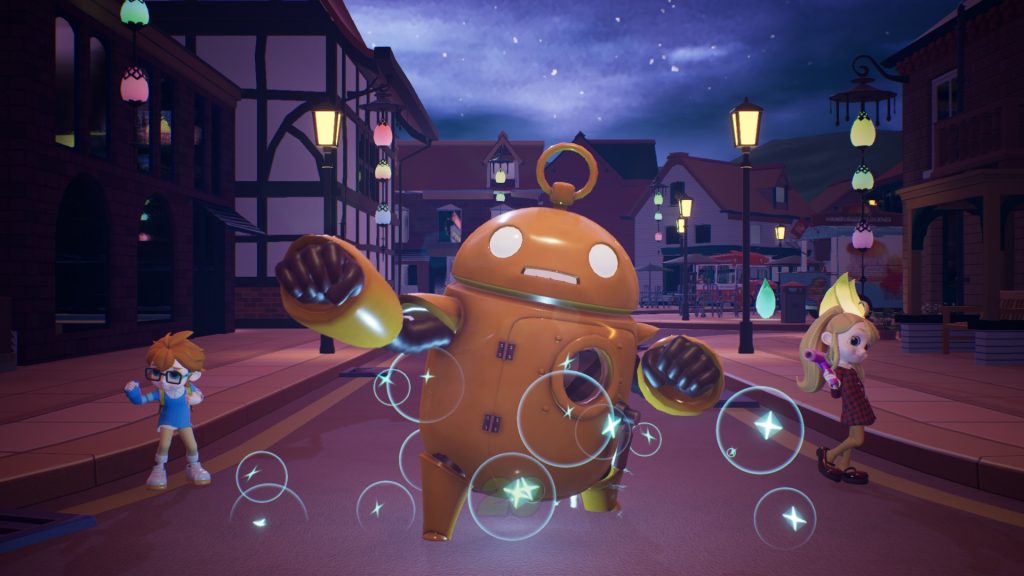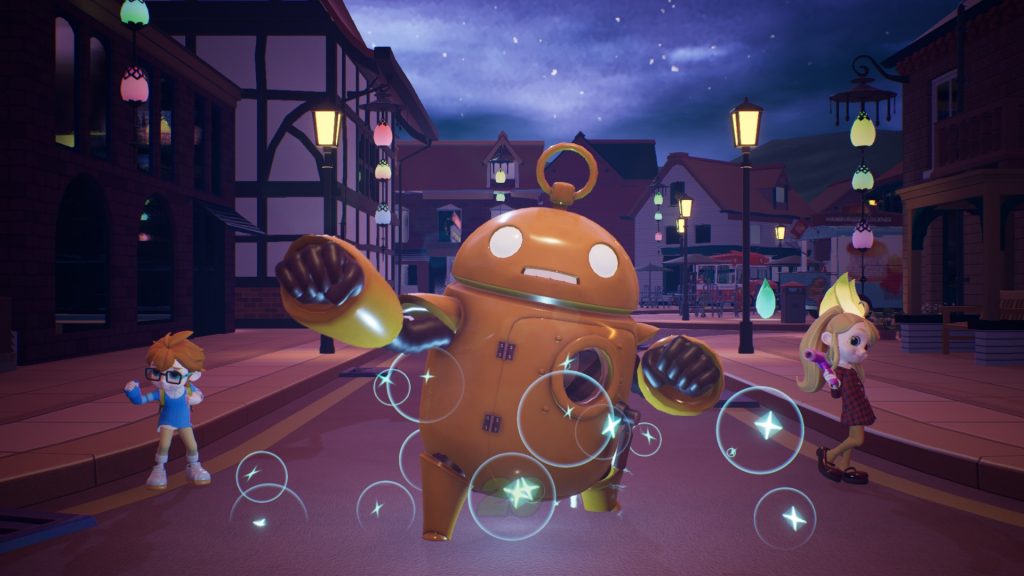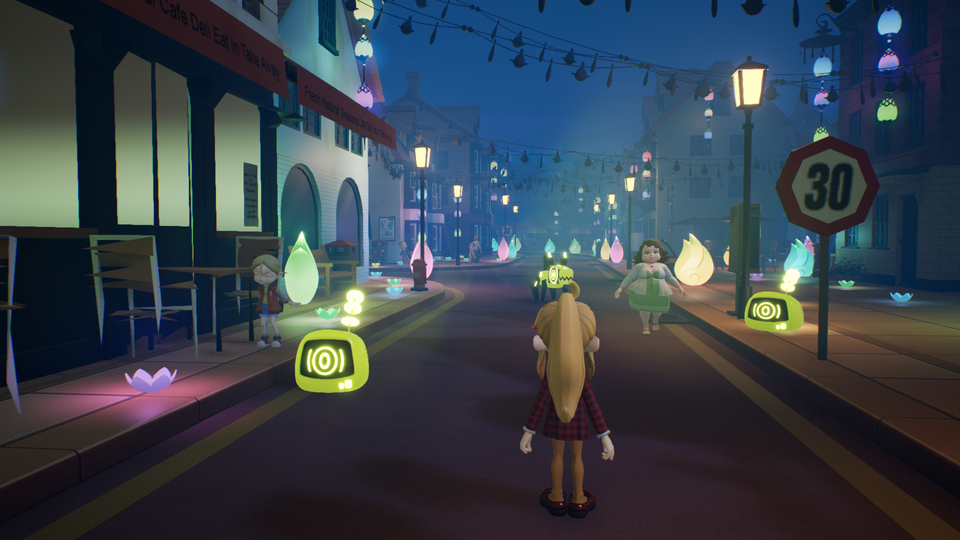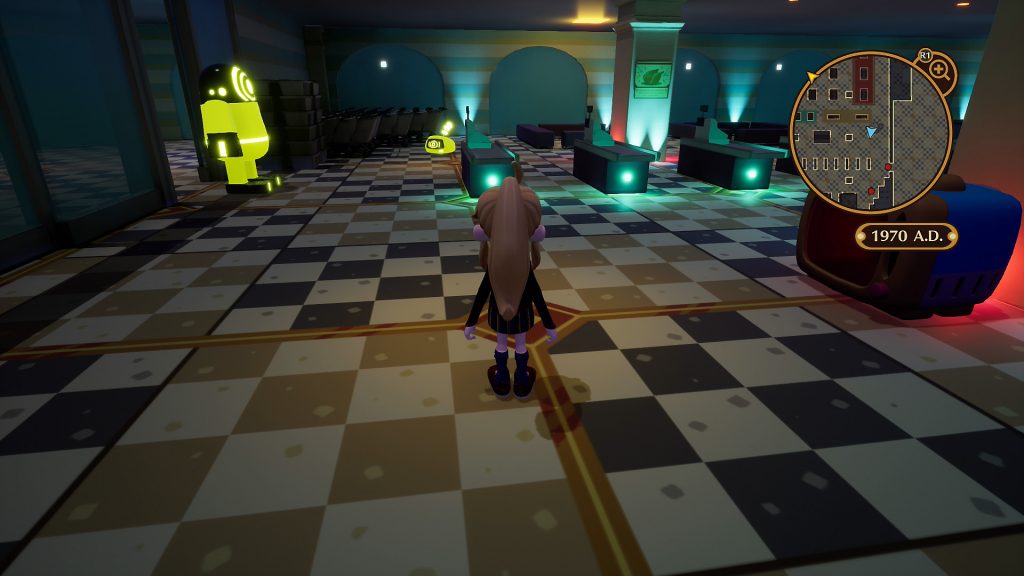The phrase “games for children” is a curious one. When I was younger, the games I played were mainly those intended for adults (yes, I know, I was very bad). The line between games for kids and games for adults was blurry, with stalwarts like Crash Bandicoot and Spyro the Dragon ostensibly being aimed at children but offering eye-watering challenge nonetheless. Meanwhile, Final Fantasy VII’s mature dialogue and complex plot seemed perfectly appropriate for a nine-year-old back then.
That said, there are some games which are unequivocally aimed in kids’ directions, and Destiny Connect: Tick-Tock Travellers is absolutely one such game. You might know developer Nippon Ichi’s name from leading JRPG lights like Disgaea, Phantom Brave, and Ys, although the developer’s latest effort dials down the occasionally nightmarish complexity of those games in favour of something more accessible here. Destiny Connect: Tick-Tock Travellers is very much a “my first RPG” affair.
The narrative setup will seem familiar to anyone who’s ever spent any time with Nintendo’s classic The Legend of Zelda: Majora’s Mask (although there are some key differences, of course). Sherry is a young girl who’s left behind when time stops in the town of Clocknee on New Year’s Eve. Accompanied by her best pal Pegreo, Sherry and her newfound robot buddy Isaac must discover the secret of what’s happened to Clocknee and why time hasn’t stopped for them.
I say it’s similar to Majora’s Mask, but in many ways Destiny Connect feels like a more basic and less dark version of that story. For one thing, the townspeople of Clocknee don’t die on a loop, and the stories of each individual townsperson aren’t bathed in retroactive pathos when you realise what Link is doing each time he resets the timeline. Instead, Destiny Connect is satisfied with its basic, no-frills approach, and younger gamers will be too, although adults will want something a bit more meaty.
That lack of meaty substance applies throughout the rest of the experience, unfortunately. Destiny Connect is not a complex game and it doesn’t want to waste time with systems, sub-systems, and optimisation. The combat here is very basic indeed, harking back to early proto-JRPGs like Dragon Quest and Final Fantasy (the originals, not the latest iterations). Again, if you’re seeking complexity, it’s best you look elsewhere, as this is definitely a game aimed at less skilled gamers.
That said, it’s not without its own little quirks or charm. The localised setting is a very nice idea and doesn’t really occur much outside of high-concept games. It’s nice for a non-Western RPG to take the idea of a single-location game and turn it into something more compelling. Clocknee is a nice place to spend time, and its nooks and crannies reveal hidden depth as the game goes on. There are some cute little narrative surprises which I don’t want to spoil, but they’re not hugely unexpected.
The combat in Destiny Connect does have its own charm as well. Isaac, your robot buddy, can transform into a number of different useful forms, each of which has a different function in combat. If you need healing, Isaac’s got a form for that. He can aid you in dealing damage to enemies, buff your party, and offer defence. Finding out what Isaac’s forms look like is half of the fun of Destiny Connect’s combat, which is cute in its own way but not particularly challenging or deep.
Exploration, too, will feel very familiar to anyone who’s spent any time whatsoever in JRPG country. You wander around Clocknee, interacting with whatever you can (many NPCs won’t talk to you because time has completely stopped for them, which can make the game feel somewhat lonely at times) and fighting monsters when they dare to show their faces around you. While Clocknee has its fair share of things to find, it’s not exactly Anor Londo, and you’ll quickly get bored if you try and stray from the critical path.
There are a few technical issues with Destiny Connect as well. During my time with the game I noticed a little bit of cutscene stutter, some slightly out-of-sync audio, and some graphical glitches. They’re nothing huge, and they won’t shatter immersion (mostly because this isn’t a particularly immersive game), but they’re probably a result of Nippon Ichi and NIS America using the Unreal Engine for this game, a toolkit with which neither company is particularly experienced.
Despite all these problems, there’s a home-grown charm to Destiny Connect: Tick-Tock Travellers that makes it hard to resist. Maybe it’s the cutesy, charming atmosphere. There is also something quite compelling about the central narrative; even a concept as daft as “time stops for everyone except you” has a central mystery which is hard to resist. Even if the conclusions are somewhat obvious when you reach the finale, you’ll still be glad you took this journey with the game.
Destiny Connect: Tick-Tock Travellers has a very specific audience in mind. If you love Dragon Quest XI and Disgaea, it’s safe to say you’ll find nothing here to stimulate you. This game is squarely (no pun intended again) aimed at younger gamers, and if you’ve got one of those in your family – or if you are one – then you’ll find a perfectly solid and charming experience here. Destiny Connect is certainly a game with a niche, and if you’re part of it, there are worse ways to spend your time.
Purchase Now.
This post didnt have a specific author and was published by PS4 Home.





